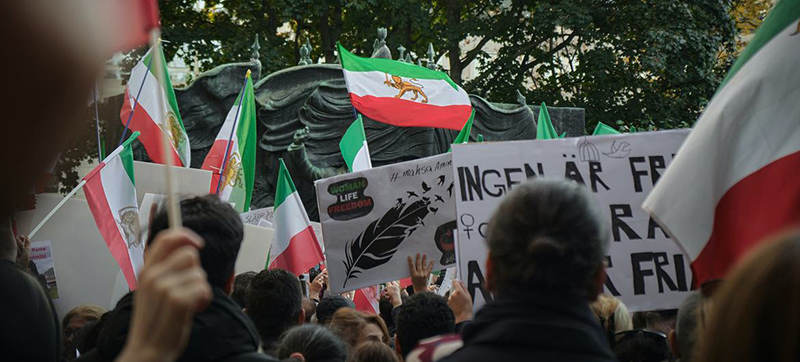Iran: possible crimes against humanity, absence of accountability - top rights expert

New York: “The most serious human rights violations in the Islamic Republic of Iran over the past four decades” have been committed since the death in police custody of Jina Mahsa Amini on 16 September 2022, Javaid Rehman, the UN Special Rapporteur on the situation of human rights in Iran said on Monday.
Presenting his report to the Human Rights Council, Mr. Rehman said that the “scale and gravity” of violations committed by Iranian authorities pointed to “the possible commission of international crimes, notably the crimes against humanity of murder, imprisonment, enforced disappearances, torture, rape and sexual violence, and persecution”.
The expert slammed “so-called” investigations of Ms. Amini’s death that were “neither credible nor transparent”, underscoring that the perpetrators were not held accountable.
Ms. Amini’s death was “not an isolated event”, he said, but rather “the latest in a long series of extreme violence against women and girls committed by the Iranian authorities”.
The report comes hot on the heels of a statement by several independent UN-appointed rights experts, including Mr. Rehman, condemning the “deliberate poisoning of more than 1,200 schoolgirls in Iran’s major cities” in gas attacks, and “the State’s failure to protect them”. In his new report, Mr. Rehman underscored that these attacks were “until recently denied by the Government”.
Special Rapporteurs like Mr. Rehman, and other UN Human Rights Council-appointed rights experts, work on a voluntary and unpaid basis, are not UN staff, and work independently from any government or organization.
Large-scale repression
Turning to the repression with which the wave of protests was met by the Iranian authorities since last September, the expert expressed outrage at the execution of at least four persons “after arbitrary, summary, and sham trials marred by torture allegations”, and the sentencing to death of a further 17 people. More than 520 people, including 71 children, were killed in the protests, and hundreds more injured.
Painting a detailed picture of the crackdown, Mr. Rehman said that Iranian security forces had fired live ammunition at unarmed protesters, and that some protesters, including children, were beaten to death. He said the authorities recently recognized that over 22,000 people had been arrested, amid an attempt to shut down “all avenues of freedom of expression”, through Internet disruptions and social media censorship.
Surge in executions and targeting of minorities
The tragic events unfolding since 16 September were taking place against a backdrop of “exponentially increasing” violations of human rights in Iran, Mr. Rehman said. 2022 saw the highest number of executions in the past five years, including an upsurge in executions of drug offenders and the continuous execution of persons sentenced to death as children.
The expert also criticized the “disproportionate” use of the death penalty against persons belonging to ethnic and religious minorities in 2022. “More than half of the total number of persons killed since the start of the protests are from the Baluchi and Kurdish-populated provinces”, he said, noting that the Baha’i religious minority remained “the most severely persecuted”.
Official denials
Responding to the Special Rapporteur’s comments, Ali Bahreini, the Permanent Representative of Iran to the UN Office at Geneva, dismissed the report as “biased” and said that the Council “should distance itself from politicization, stigmatization and stereotyping, which can only create division and confrontation”. He said that “all detainees except those who have committed murder and have private complaints have been released”.
Call for accountability
In his report, Mr. Rehman underscored an “absence of accountability at the domestic level” in Iran and said that he looked forward to cooperating with a newly-established international mechanism “to ensure justice and accountability for victims of human rights violations”.
Meeting in a Special Session last November, the Human Rights Council decided to establish an independent international fact-finding mission on the Islamic Republic of Iran, until the end of the fifty-fifth session of the Council taking place in March 2024. The members of the fact-finding mission were appointed at the end of last year.



